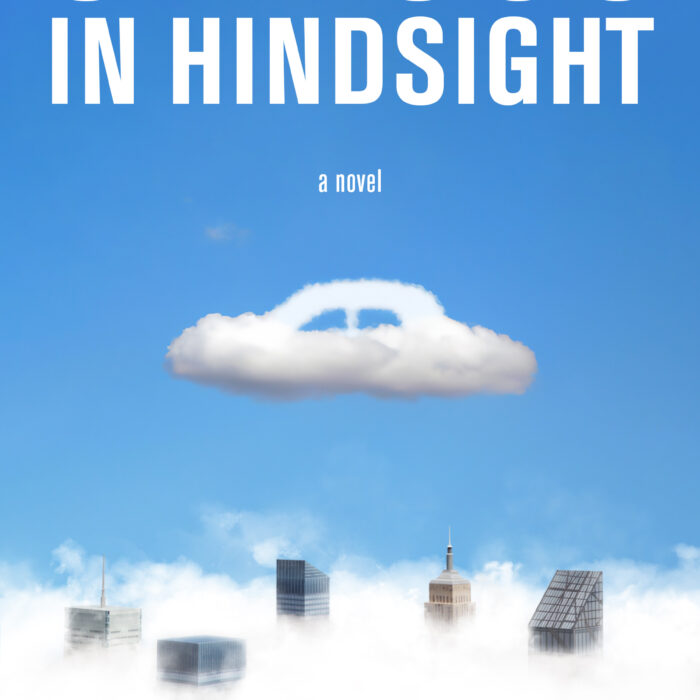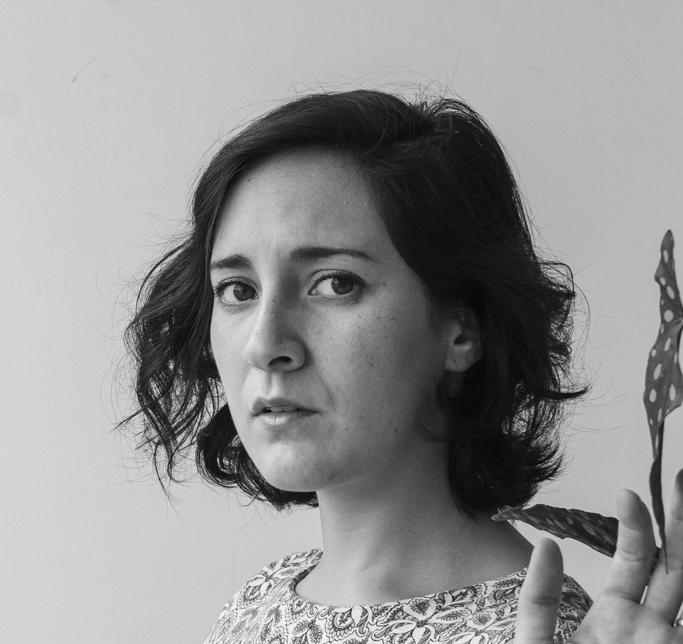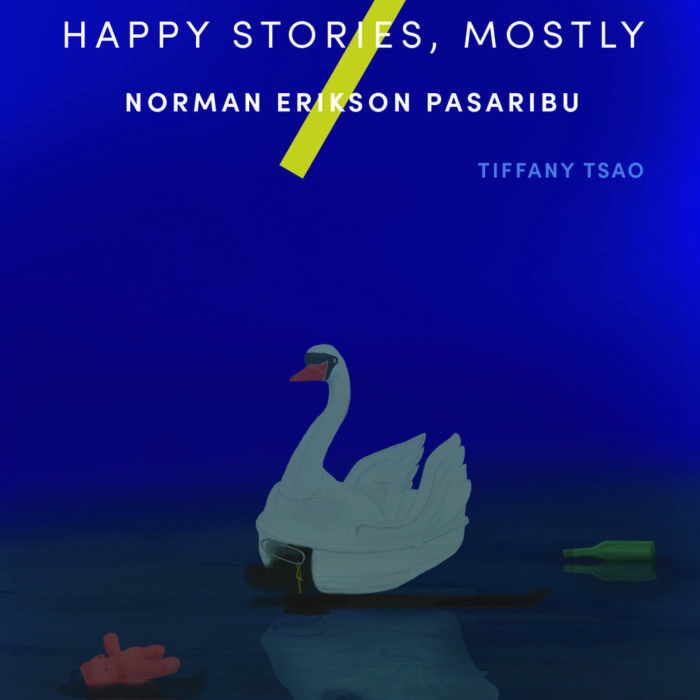You have no items in your cart. Want to get some nice things?
Go shopping
Anton Hur was born in Stockholm, Sweden. He is the translator for Bora Chung’s Cursed Bunny and Kyung-Sook Shin’s Violets. He resides in Seoul, Korea.
His latest work is a translation of Sang Young Park’s Love in the Big City, which tells the story of a cynical but fun-loving Korean student. He and Jaehee, his female best friend, frequent nearby bars in an attempt to suppress their anxieties about their love lives, families, and money. The translation of Love in the Big City is published today by Tilted Axis Press.
When Jaehee settles down, Young is left alone to care for his ailing mother and find companionship with a series of men, including one whose handsomeness is matched by his coldness and another who has the potential to be the love of his life.
Katy Ward: Thank you for speaking to us. I really enjoyed Love in the Big City. The characters are so relatable, and there’s such a lyrical quality to the translation.
Anton Hur: I’m so glad to hear that. It’s been such a huge bestseller in Korea.
KW: As a translator, you must feel a great deal of responsibility to do justice to another artist’s work. Is that daunting?
AH: I feel like the artists and the writers I’ve worked with have just been so generous. They’ve always respected me and encouraged me to have my own vision of their work without being too precious about the source material.
For example, I worked with Bora Chung on her collection of short stories Cursed Bunny. She actually speaks English extremely well and got her PhD in America, so she could technically translate her own work. Thank God she doesn’t because I would be out of a job.
She’s also a translator of Russian and Polish literature into Korean, so she understands how it works and is always encouraging me to have my own version of her stories. None of my authors have ever been very possessive about their work. They’re much more interested in seeing how their work could change in translation and what kind of permutations are possible.
KW: How do you go about forming a relationship with an author whose work you are translating?
AH: People expect authors and translators to have very complicated and deep relationships, and I guess that’s logical. When I spend every day translating an author’s work, I feel like I know them very well. It’s almost like I’m friends with them, but some of the authors I work with have never met me.
Bora and I talk fairly often, but we never talk about translation. We talk about random stuff like the protests in Korea because she’s very political, but there are some authors I don’t know very well as people.
I’ve met Sang Young Park a few times, but I wouldn’t say I know him well. He’s a very prudent person, but he can also be kind of vulnerable.
KW: There must be a certain amount of frustration in your work as I imagine some concepts don’t quite have an equivalent in other languages. How do you get around this?
AH: There’s a huge myth in translation that, if a word exists in English, it will exist in another language and vice versa. However, there are far fewer words with correlates like that than you would expect.
If you take a word like bicycle, for example, there’s obviously a word for that in Korean. But take a word like love; love is different for every person, but I suppose that’s less about language. In English, people say they feel love in their heart, but in Korean, we say that we feel it in the mind; the mind is essentially our core.
KW: I think it makes more sense in Korean.
AH: The heart makes sense, too, because you can feel your heart beating and it’s an essential part of you. I get both metaphors, but it’s very rare for these types of metaphors to coincide exactly in different languages.
It’s part of the challenge of translation. There are a lot of puzzle pieces, and sometimes you go through all these different expressions and then you find one that’s, what the French call comme il faut, and you know it has to be that. That’s a nice moment in translation when you hit that word.
KW: Were there any particular challenges with Love in the Big City, or was there anything you especially enjoyed in the act of translation?
AH: The challenge of this book was the fact that he was a new writer, not just in English but also in Korean. I sold this book before it came out in Korean. Not a lot of people know that.
From the beginning, I just knew I was going to translate it. I felt like if I had moved a bit more slowly, some other translator or agents would have snatched the book up, so the biggest challenge was moving as fast as I did.
KW: You say you sold the book. Can you tell me a bit more about how this process works, please?
AH: The first person I approach is the author. I followed Sang Young Park on Twitter and sent him a message explaining who I am and what I can do. Then, I got his permission to talk to the Korean publisher, which is the actual rights holder. At the time, I had already had some contact with the rights department of that particular publisher, so I was able to ask for sample rights on Love in the Big City. I then sold the book to a British publisher, Tilted Axis Press, which signed a contract with me to translate the book. Until that point, another translator could have swooped in, say someone more famous than I am or who has done more translations, and stolen the project.
KW: Wow. I had no idea the translation world was so competitive.
AH: It’s Mad Max out there.
KW: I’ve seen Love in the Big City being described as queer fiction or Korean fiction, but one of the things I enjoyed most about the book was that so many of the emotions it portrays could be relevant to any reader.
AH: Most people I know really enjoy reading books that are not set in their neighbourhood or even their country. It’s a very common sentiment that we read books to travel and we want to read about places we’ve never been and people we’ve never met or even times we haven’t lived in.
At the same time, a lot of themes in Love in the Big City are familiar. Sex and the City and Bridget Jones’ Dairy are all modern tales of searching for, and finding, love in the big city. They all have a similar narrative, and that’s what people who love these books will respond to with Love in the Big City.
KW: When I read the book, I really liked the sense of being in your 30s and yearning for a time when you were 18 or 19. What was your personal favourite thing about the book?
AH: My personal favourite thing is the fact I got to translate it. This is going to sound silly, but I also love the fact that I’m living in an era in which someone who is around my age and who has lived through the same times as I have managed to write about these experiences and have it become such a huge bestseller.
We’ve had queer literature in Korea since the beginning of time, but this is the first time a work has had this much success commercially. It’s just so incredibly moving for me on a level that I can’t quite describe. I feel seen, and I feel represented; like this is my story and it has been told extremely well. If people are listening, that is so gratifying.

KW: That doesn’t sound silly at all. It would also be interesting to know a bit more about your background. How many languages do you speak?
AH: When we say we speak a language, it’s such a vague thing. I obviously have fluency in Korean and English, and I also have an Open University degree in French so I can read and hold very simple conversations in French. My second foreign language in high school was Mandarin.
KW: And why did you decide to become a translator?
AH: Like most translators, I didn’t really decide to become a translator. I read this study about simultaneous interpreters who graduated from the interpreting school at Hankuk University of Foreign Studies in Seoul. The researchers asked the same question to a bunch of interpreters who all answered that they fell into it because they happened to be bilingual, and people would pay them for translation and interpreting jobs.
By the time that I got to a certain point with my client list and was getting regular work, I realised it could be a career. What made me transition into full-time literary translation was that I very deliberately wanted to work with literature and in the literary world. For me, this was the most obvious way to access that world. I worked hard to build a reputation and a readership and to develop contacts in the Anglo and Korean publishing worlds.
KW: Do you write your own fiction?
AH: I published a short story called “Fictional Notes Towards an Essay on Translation” this year in Asymptote magazine. In the story, there’s a character based on me who is translating an author and finds himself turning into his author. I also published another short story called “Missing” in Apofenie based on a this dream I had almost 20 years ago, in which my friend was doing something very strange in a foreign country.
KW: Sounds intriguing. Those are all the questions I had prepared. Is there anything else you’d like to add?
AH: I’m going to ask you a question. I’m curious as a translator. Is there any scene, word, or phrase that really sticks in your mind when you think back to Love in the Big City?
KW: There were lots of portions I loved, but I’d pick out the beginning when the narrator is at the wedding of his university classmates and says, “We’re all aging at different speeds.” That really reminded me of when I went to a university reunion not long ago.
I also really liked the times when you see other characters trying to connect with the narrator, but he is pushing them away. It reminded me of all the times in my life when I’ve felt lonely but looking back, people were making an effort.
AH: I think we’ve all been there.
KW: Well, I certainly never expected to be asked a question. But thank you so much again for speaking to us. There’s certainly a lot more to the world of translation than I realised.
AH: Thank you. It’s great to be in Litro again.

Katy Ward
Katy Ward is a freelance journalist from Hull. Her work has appeared in The Metro, The Overtake, LoveMONEY and Independent Voices. She has a BA in English from Oxford University and a postgraduate diploma from City University.





One comment